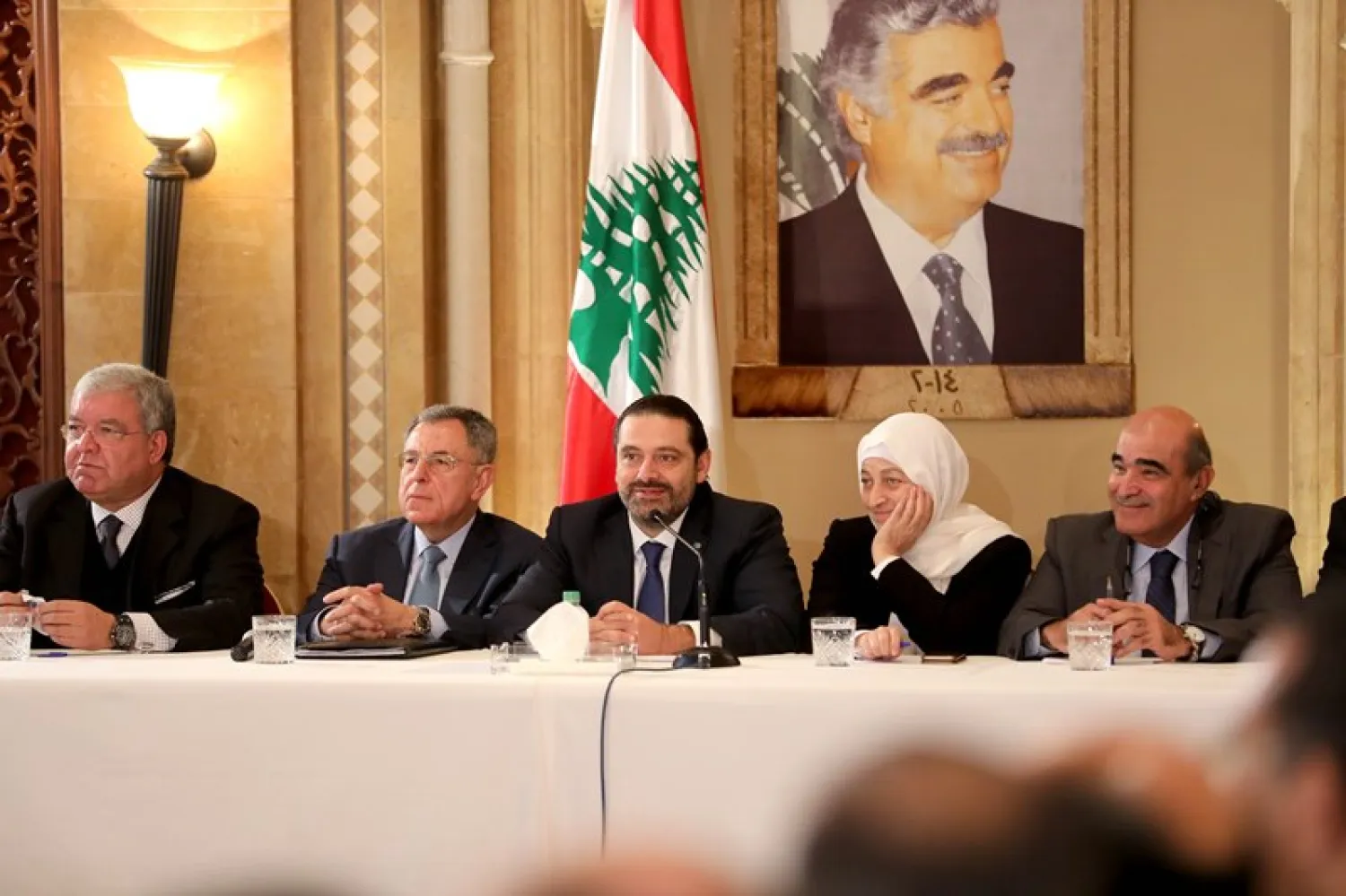Negotiations among Lebanese officials increased on Thursday with hopes of saving a political settlement in the country.
The presence of higher chances to achieve the mission and to implement a “disassociation policy,” came only one day after Prime Minister Saad Hariri announced he has decided to hold off presenting his resignation.
The talks are mainly held between President Michel Aoun, Hariri and Speaker Nabih Berri, who is in contact with “Hezbollah,” the main concerned party in any new deal that could lift the government.
Also, head of the Democratic Gathering parliamentary bloc MP Walid Jumblatt plays a leading role in the existing political dynamic, while the circle of negotiations is expected to expand in the coming phase at all levels.
Agriculture Minister Ghazi Zeaiter told Asharq Al-Awsat: “Berri exerts all efforts to save Lebanon and its stability and to protect the last political settlement that led to the election of Aoun as president and the appointment of Hariri as prime minister.”
While “Hezbollah” announced its readiness to engage in dialogue, sources close from Hariri described the current political dynamic by saying: “There is a conductive atmosphere to save the Lebanese settlement and contacts are ongoing, pending the finalization of their results, which might need some time.”
The sources said that the Prime Minister handed a clear message to Berri, who will discuss it with “Hezbollah.”
“Hariri did not present a new settlement, however, undoubtedly, an agreement on any new item would need an announcement similar to the ministerial declaration that makes every party responsible for its positions,” the sources told Asharq Al-Awsat on Thursday.
They added that Hariri’s demands were now made clear for all sides.
“We can say that all parties are widely responsive to Hariri’s approach, a development that helped the prime minister take the decision of holding off his resignation.”
Meanwhile, head of “Hezbollah’s” Loyalty to Resistance parliamentary bloc, MP Mohammed Raad said on Thursday that the party “is open to all issues that protects security, civil peace and the return of matters to normality.”
Sources informed by “Hezbollah’s” stances told Asharq Al-Awsat that “the party’s participation in Iraq and Syria happened before the establishment of the cabinet and the presidential settlement.”
The sources added that “Hezbollah is ready today to engage in any dialogue that could lead to a solution and the protection of Lebanon.”
Also on Thursday, the Future Parliamentary Bloc, Political Bureau and Executive Bureau held a joint meeting at the Center House under the chairmanship of Hariri.
A statement issued by participants said that the meeting considered that Hariri’s acceptance of the President's request to postpone his resignation, is a wise step for further consultation on the causes of the resignation, for the respect of dissociation from the surrounding wars and conflicts, for refraining from anything that harms Lebanon's relations with its Arab brothers and for the refusal of the interference by any Lebanese or regional party in the internal affairs of the Arab countries.









